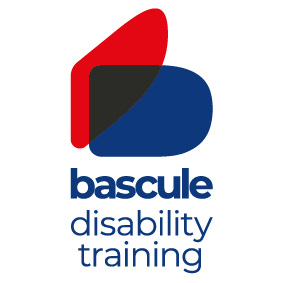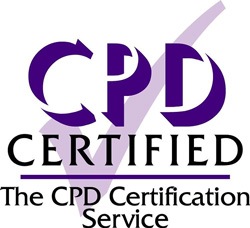Disability- The detrimental impact of secrecy

This article originally appeared on Occupational Health and Wellbeing.

Many people go about their working lives keeping their disability a secret from their employers, much to the detriment of their health and wellbeing. Here, Chris Jay -the Managing Director of Bascule Disability Training, explains how to provide a more supportive workplace, and what OH can do to help facilitate change…
When we think of disability, we often envisage visible impairments- an assistance dog or mobility aid- most commonly, a wheelchair. However, it is estimated that around 80% of disabilities are non-visible, which means, at some point in their lives, around 11 million people in the UK will decide whether (or not), to be open about their disability in the workplace.
Living with disability effects one in five of us, and in many different ways, but for a vast majority, it presents extra challenges. The list of non-visible disabilities is long and includes asthma, Crohn’s Disease, chronic pain, depression, ADHD, bipolar disorder, diabetes, epilepsy, dyslexia, dyspraxia, dysgraphia, rheumatoid arthritis, visual and auditory disabilities – and that’s the tip of the iceberg.
Because these disabilities are non-visible, it’s not uncommon for people to keep them a secret in the workplace. The main reason for this is fear of stigmatisation and discrimination, or simply being perceived as different. People also worry that co-workers may misunderstand their disability or offer them unwanted sympathy and attention. They also worry that they may be presented with fewer opportunities by management, leading to slower progression. Which comes as no surprise when you consider that one in three people feel that those with disabilities are ‘less productive’.[1]
Disability disclosure is, of course, entirely up to the individual and by no means an obligation but choosing not to reveal a disability in the workplace can be detrimental to a person’s physical and mental health as well as their general wellbeing.
Secrecy and the impact on health and wellbeing
Let’s face it- work is tough! Workplace stress exists in all industries across nearly all working environments with the overwhelming majority (79%) of all UK adults feel stressed at least one day a month. On average, a typical UK adult feels stressed approximately 8.27 days a month which equates to more than twice a week.
That feeling of stress impacts us mentally and can cause anger, aggression, irritability, frustration and depression or even aggressive behaviour. Physically, it can trigger issues such as headaches, nausea, indigestion, digestive problems, breathing issues and aches and pains. Consider now, the additional challenges of maintaining a job, with a non-visible disability that you haven’t revealed.
To give an example- imagine being someone who has not revealed they are diabetic who is suddenly asked by their boss- ‘please can we work through our lunch break as it is so busy?’. The stress levels now are doubled for that particular staff member as a stressful situation just became a danger to their health. On the one hand, you could turn down the offer and refuse but if everyone else does so, but you don’t, how does that make the others feel about you if they don’t understand the true reason for your apparent lack of ‘team spirit’? Or imagine being someone that hasn’t revealed a chronic pain condition. Colleagues may misinterpret your symptoms for laziness, and when you need additional breaks, they may complain, or comment that their colleagues’ lateness has let the team down.
Put simply, as well as jeopardising a person’s physical health by not adequately looking after themselves, hiding a disability can be very stressful. A recent US study set out to prove just that and found that employees that do reveal their disability are more than twice as likely to feel happy or content at work than those who do not (65% versus 27%). They are also less likely to regularly feel nervous or anxious (18% versus 40%) or isolated (8% versus 37%).
So how do we make the change, reduce the number of people hiding their disabilities, and therefore improve their health and wellbeing?
Gaining awareness
If people are reluctant to talk about having a disability, there’s likely to be a reason- and workplace culture- or a lack of disability awareness, is usually somewhere at the heart of this problem.
Raising awareness through training programmes encourages people to be confident and comfortable revealing and discussing their disabilities, helping colleagues to be more understanding, whilst also helping people with disabilities to gain the support they need to improve their working lives.
Training and educating managerial staff is a particularly important aspect of this, as awareness and understanding of disability will trickle down to other staff members, allowing a more supportive and inclusive workforce to develop.
It is also important that when choosing a training provider, a user led organisation (meaning the courses are designed and delivered by people with disabilities themselves), is selected. The content of this training should focus on modules including etiquette, communication, correct use of language, inclusive behaviour, legislation and how to best make reasonable adjustments.
How can OH create openness around disability?
The word we typically use to describe organisational awareness about employee disability is ‘disclosure’- which is, frankly, a negative word. It implies that something bad is being hidden, that a person has a dark secret and is concealing it, but realistically, if an employer has an open and truly inclusive workplace culture, secrecy and concealment won’t ever be necessary.
Occupational Health can play a big part in developing that openness. OH is commonly misunderstood to be something we turn to as and when people experience an issue. However, by reframing the way that OH is perceived, it can be understood as more of a preventative tool that can help facilitate people to bring the best version of themselves to the workplace. OH should demonstrate and reflect an employers’ willingness to assist and help staff develop, rather than struggle with a disability, alone and in secrecy.
If members of staff who have not revealed their disability begin to understand and see OH as a part of a system in place to help staff with disabilities, they will be more likely to reveal their own. This can be achieved by OH demonstrating and detailing the success of their interactions and ways it can help- perhaps in case studies or communications materials. These would demonstrate how adjustments made by the employer, enabled staff with disabilities to be healthier and improve their wellbeing, mental health and productivity. Knowing that other staff members have achieved this, through the organisation’s open, helpful and welcoming culture towards inclusivity, will certainly reduce secrecy.
If there is a limited response, perhaps anonymous surveys could be considered to gain a better understanding of how OH is perceived in the workplace. Here you can determine whether staff are aware of how OH can help them gain support, or how they can benefit from reasonable adjustments, should they have a disability they have not revealed. Anonymous surveys may also be a good method of understanding if any staff have disabilities they have not revealed, and why.
In conclusion, staff will always sense an employer’s willingness to support them and make adjustments to help them be the healthiest, happiest version of themselves. In turn they will be much more likely to be open about the disabilities they may otherwise be hiding.
Developing awareness, and subsequently creating an inclusive workplace culture, is the best place to start, and will also give OH the perfect platform to demonstrate its support, exemplify the benefits of change, and how it can facilitate individuals once they make the choice to be open about disability.
[1] Disability facts and figures | Disability charity Scope UK



